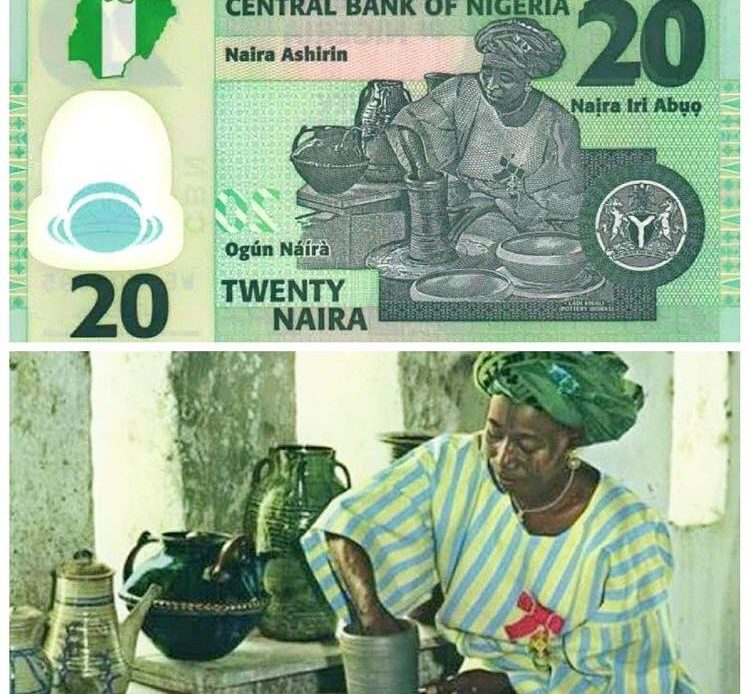
The woman whose picture is on our 20naira note is Ladi Kwali. She was born in Kwali, Birmingham Gwari, Kaduna State in 1925. Born into a community in the time where formal education was scarce, she learnt pottery as a child from her aunt because pottery was the common occupation amongst the women in the community.
She started out making large pots, cooking pots, bowls, and flasks from clay. They were uniquely decorated with incised geometric and stylized figurative patterns, including scorpions, lizards, crocodiles, chameleons, snakes, birds, and fish.
Soon, that became her trademark and her pots were noted for their beauty of form and decoration, and she started to get recognition as a gifted and eminent potter. Her works were so creative and beautiful that history has it that, several were acquired by the Emir of Abuja, Alhaji Suleiman Barau, in whose home they were seen by Michael Cardew in 1950.
In 1951, Michael Cardew was appointed to the post of Pottery Officer in the Department of Commerce and Industry in the colonial Nigerian Government. While in the position, he established the Pottery Training Centre in Suleja (then called “Abuja”) in April 1952. Ladi Kwali joined the Abuja Pottery as its first female potter in 1954. The Abuja Pottery was renamed after her as Ladi Kwali Pottery in the early 1980s.
Potter Ladi displayed so much dexterity with this skill and this made her well-known in countries beyond Africa like Europe, Britain, America etc. As a matter of fact, from the late 1950s to the early 1960s, her works were displayed at the Berkeley Galleries in London.
Her skillfulness earned her many honourary awards and recognitions some of which are MBE (Member of the Order of the British Empire) in 1963 as the best PotterinNigeria; an honorary doctoral degree from Ahmadu Bello University in Zaria in 1977; the symbol of the Nigerian National Order of Merit Award (NNOM) from the Nigerian Government, the highest national honour for academic achievement in 1980; the national honour of the Officer of the Order of the Niger (OON) in 1981; A major street in Abuja is called Ladi Kwali Road and her picture appears on the back of the Nigerian 20 Naira banknote.
She lived for only 59 years but till today, she has left a footprint in the sand of time that can’t be erased forever. I hope this challenges you to improve your skill and do it uniquely.





